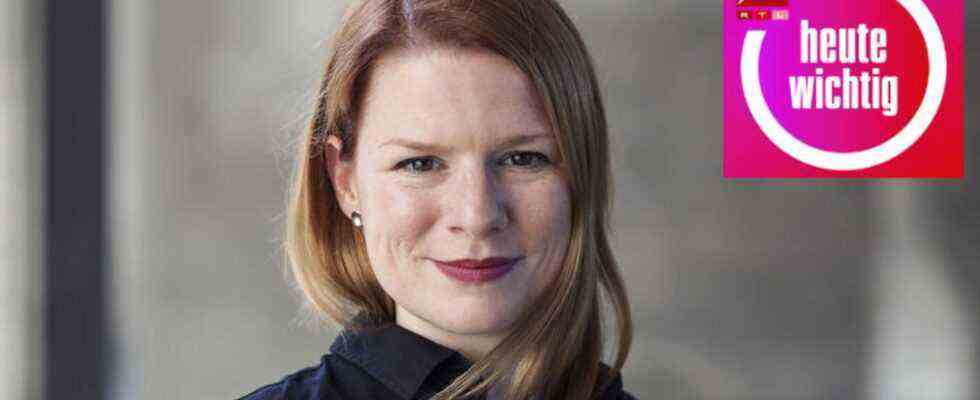Podcast
“important today”
Built by Men for Men: Why Many Cities Fail to Meet the Needs of Women
“A district is completely different for a person who is dark-skinned, for a person in a wheelchair, completely different for a woman, a man,” says Dr. Mary Dellenbaugh, Landscape architect and PhD in human geography.
© Mary Dellenbaugh
A city should be gender-responsive, one thinks. But many cities and municipalities are not – on the contrary. Particularly disadvantaged: women, people with disabilities and children.
“A district is completely different for a person who is dark-skinned, for a person in a wheelchair, completely different for a woman, a man. We have many different ways of looking at a place,” explains urban planner Dr. Mary Dellenbaugh-Losse on the podcast “important today”. But these different perspectives are problematic for the groups addressed. This ranges from the actual physical hurdle to a felt or actually experienced insecurity. Because mostly streets, squares and parks are designed by men – and therefore for men. They drive more often and tend to be less afraid of the dark, explains Dr. Dellenbaugh-Losse.
It happens that women consider many places to be more dangerous, as a 2020 survey by “Plan International”, a network of NGOs, showed. The questions asked about women’s feeling of security were in more than 1000 locations in four major German cities. The result: the respondents rated 80 percent of these places as unsafe. Mary Dellenbaugh-Losse advises cities on gender participation in urban planning and, in an interview with Michel Abdollahi, sums it up: “Gender-appropriate urban planning is simply user-friendly urban planning.”
“People are not ‘one size fits all'”
Whether people with disabilities, people with a migration background or children, many parts of the population have a harder time in German cities than others. But that is currently changing. The bicycle is gaining in importance, and many other municipalities are also trying to develop their cities in such a way that they are more attractive for pedestrians, for example. Because even large cities are a living space that should ideally not only be about cars, but about the people who live there.
Atomic energy and natural gas could become climate friendly
The EU Commission announced at the beginning of January that it was planning investments in modern gas-fired power plants and new nuclear power plants to be classified as climate-friendly. A topic that not only concerns investors: If these forms of energy were classified as green, more money could soon flow into them. The EU countries are not entirely in agreement on this, and Austria may even want to complain against it. And the traffic light government also has internal differences, explains EU correspondent Carsten Mierke: “For the Greens this is a kind of meltdown.”
How to subscribe to “Important Today”
Don’t miss an episode of “Important Today” and subscribe to our podcast at: Audio Now,Spotify, Apple Podcasts, Deezer, Castbox or in their favorite podcast app. If you have any questions or suggestions, write to us at [email protected].

